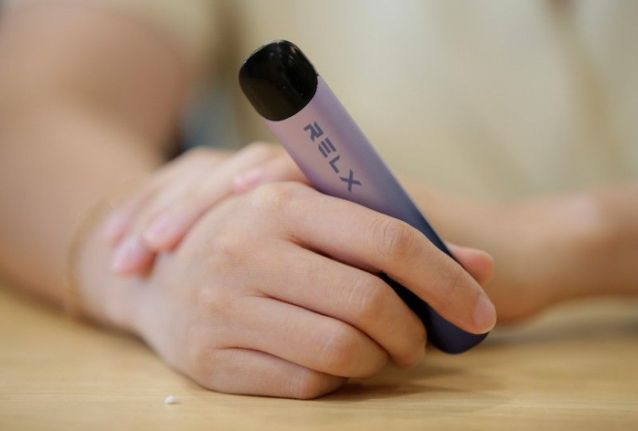RELX, a Chinese startup founded by former employees of Didi Chuxing, China's Uber, wants to become China's answer to Juul Labs Inc, the US startup that has a huge vaping market.
Just this April, RELX got $75 million in venture capital funding from high-profile investors that include Sequoia China and Yuri Milner.
RELX sells a similar product like Juul Labs: a stick-shaped device that burns high-nicotine liquids packaged in plug-in "pods."
However, it won't have to compete with the US e-cigarette giant because the company's potential-customer is the 300 million Chinese traditional cigarette smokers, nine times than that of the US'.
Juul has yet to crack the Chinese market, potentially its most lucrative market, even as it expands in Asia.
E-cigarette sales in China have grown slowly compared to other industrialized nations.
It is not clear how the national tobacco regulator will regulate e-cigarettes or whether it will sell them in the first place.
The moment RELX gets a green light, China Tobacco can regulate its competitors out.
According to calculations by Professor Rose Zheng of the University of International Business and Economics in Beijing, China Tobacco accounted for 5.45% of China's tax revenue in 2018, giving the country 10.8 trillion yuan ($1.5 trillion).
China Tobacco, the national tobacco regulator which is also a state-owned tobacco company, sells cigarettes at a very low price compared to most nations.
A pack of cigarette goes for 3 yuan per pack or less than half a US dollar.
RELX sells a device and one pod between 299 yuan to 399 yuan.
Likewise, foreign firms, particularly US companies, face the downsides of the current US-China trade relations, cultural challenges in marketing and distributing coupled with the competition from Chinese e-cigarette startups including RELX, recently valued at $2.4 billion.
In September, for a short time, Juul started selling devices on two Chinese online commerce sites, Tmall and JD.com Inc.
For unknown reasons, the products got pulled out from the websites days later.
In a move to stop Chinese youth from buying, China Tobacco issued a Nov. 1 notice urging e-commerce platforms and e-cigarette companies to shut online stores offering vaping products.
So far, Juul has no comment on its marketing strategy for the mainland.
RELX CEO Kate Wang is "not worried" about the government's impact on the e-cigarette sector.
She added that the products will continue to remain available "as long as there's proof that this is a good solution for smokers."
According to Electronic Cigarette Industry Committee, a Chinese trade association, 95% of the world's e-cigarettes are made in China though almost all of them gets exported.





